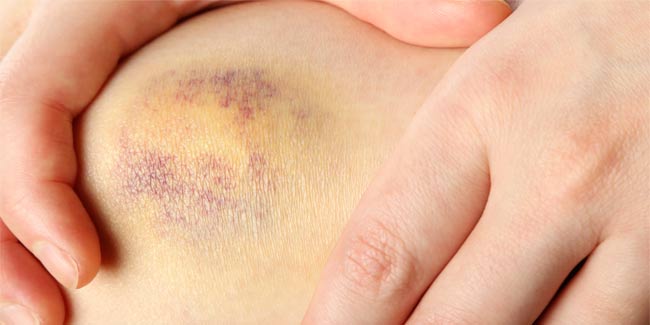
An abrasion is a minor injury, which can occur when you brush up against a rough surface or sharp objects. An abrasion covers surface area of the skin (only epidermis), but does not penetrate all the way through skin. Thin-skinned bony areas such as knees, ankles and elbows are more prone to abrasions than thicker or padded parts of the body.
An abrasion covers surface area of the skin (only epidermis), but does not penetrate all the way through skin. Thin-skinned bony areas such as knees, ankles and elbows are more prone to abrasions than thicker or padded parts of the body.
Minor abrasions and scratches can be treated at home. The general treatment of abrasion includes cleaning the abraded area with a mild soap or antiseptic and application of an antibiotic ointment with a dry dressing to cover it.
[Read: How to Relieve Puncture Wound Pain]
If you don’t take care of small wounds and abrasions, they may cause problems. Here is how you must care for skin abrasions yourself.
- Skin abrasions are prone to infections. You should clean the area thoroughly and remove any dirt and debris.
- If the wound is bleeding, you must apply pressure to the abraded site. Hold a clean cloth firmly against the abrasion for for at least 10 minutes. Bleeding from the wound will stop in a few minutes.
- Clean the area with a non-fibre shedding material or sterile gauze. You can use an antiseptic such as Betadine to do so. After removing debris or dirt with the antiseptic, rinse the wound after two minutes under flowing tap water.
- Remove the loose skin from the abrasion.
- Don’t scrub at the abraded site as it can make the injury worse by damaging tissues. If necessary to remove dirt, use a clean gauze and scrub the area gently. Alternatively, use a clean washcloth to rub dirt out of the abraded site.
- After cleaning the abraded site, cover it with an appropriate non-stick sterile dressing.
[Read: Home Remedies for Skin Abrasion]
When to Call the Physician
Most abrasions don’t need a doctor's care. However, you should see a doctor if:
- Abrasion or wound is deep, bleeds heavily or has an object deeply embedded, it should be seen and cleaned by a physician.
- You develop a fever
- Injury gets worse after appropriate care or abrasion does not heal after a week.
- The wound is on your face.
- You can see fat or muscle or the injury is deep that may need stitches.
- You are not able to remove all of the debris out of the wound.
- You have a puncture wound and haven't had a tetanus shot in the last few years.
- You have numbness, or loss of movement, which may be the signs of a nerve or tendon injury.
Read Next
Precautions to take against Vitiligo
How we keep this article up to date:
We work with experts and keep a close eye on the latest in health and wellness. Whenever there is a new research or helpful information, we update our articles with accurate and useful advice.
Current Version
